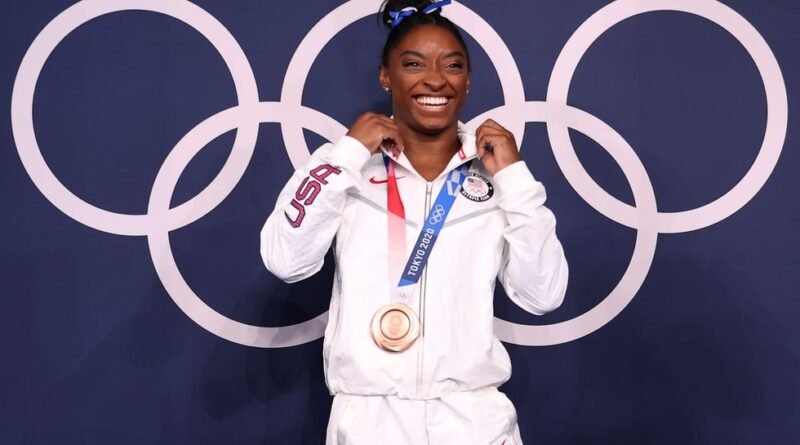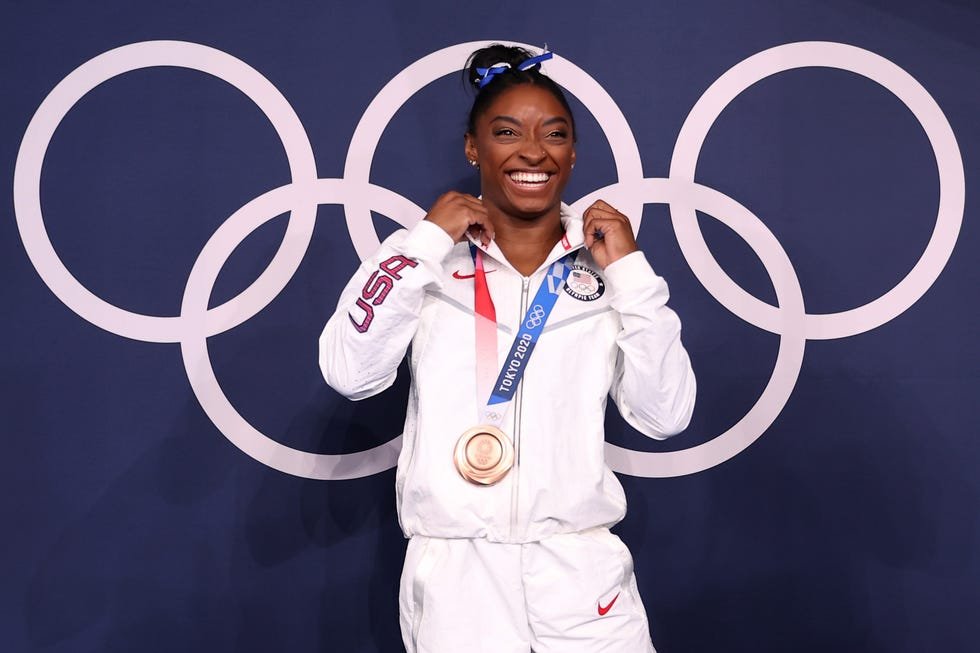How Team USA Took Their Mental Health Program to the Olympics
Not Simone Biles eliminated from the individual Around Around competition during the 202o Tokyo Olympics, he expected the worst. Simone said this week: “When we went up to Tokyo, I was so scared of getting injured physically that I kind of neglected my mental health. “I put that on the back burner and I was injured, except that it was mind danger.” The gymnast has said she feels “the world is going to hate” her latest Games.
He’s not the only one I like more than before, but his efforts to speak publicly about his mental health sparked an entire movement and forever changed the way we talk. mental health in sports (um, believe me, because we in the end talking about it). And this year, when Team USA arrived in Paris, it did so with the full support of mental health professionals.
“There’s been a lot of stigma around mental health in sports because it’s seen as a weakness,” Jessica Bartley, PsyD, LCSW, CMPC, executive director of psychological services for the US Olympic and Paralympic Committee (USOPC) states Cosmopolitan. But gradually it is being recognized as a force to get the necessary support. Top athletes speaking out take away the stigma, but it’s still there. ”
Bartley was introduced by the USOPC in September 2020 to develop a new mental health program in line with the Olympic Games. His team includes 15 full-time employees (plus one part-time employee) and approximately 300 contributors to the USOPC Mental Health and Mental Performance Registries. Along with a 24/7 hotline for coaches, athletes and staff (also available via a QR code posted at training facilities), the Bartley team offers individual and team/group services for t cognitive function and mental health. They also regularly screen athletes for mental health problems with the IOC Sport Mental Health Assessment tool which asks questions about sports-related stress, depression, anxiety, disordered eating, drugs, alcohol, sleep and stress.
He adds: “We provide a lot of education and training to athletes and those who support athletes.” “We have crisis services and a mental health emergency response plan, so we are dedicated to suicide and psychosis – serious mental health emergencies. But we are also prepared for the death of a loved one or a major loss.
Athletes interact with many others more than what we see on screen, and it’s part of Bartley’s job to help reduce as much pressure and stress that comes along with high-profile competitions as possible. That’s why the club is offering this year’s athletes free memberships to Headspacea mental health resource with guided meditation and stress management tools, as well as posting videos and information about the delegation tool to help with quality sleep.
She says: “Sleep is a big concern, and another second is not eating well and body image… especially for female athletes. For the latter, they have personal advisors dedicated to any competing athlete. When it comes to sleep, Bartley’s team created customized sleep plans for each athlete entering Paris 2024. Team USA athletes and they get individual cooling units in their rooms in the Olympic Village and will have access to mattress pads and other sleeping materials if they want/need them. They also get supplies of sleep hygiene, courtesy of Bartley and his team, including sleep and bedtime tips (like why you should get 20 to 90 minutes of sleep and before 4pm) , along with an eye mask, ear plugs, lip balm, and peppermint.
“We take our mission very seriously,” adds Bartley, “we all have mental health, and our Olympic and Paralympic athletes are people too. We just want to support them as individuals as they work to be competitive and healthy. ”

Kristy Alpert is a lifestyle editor at Cosmopolitan, covering travel, health, food, home, and more. He has visited all seven continents—paying rent on three—and is very proud of his spice cabinet, which includes juniper berries from Norway, cardamom from Nepal, and the precious ras el hanout from Morocco. Before mixing Cosmowas a freelance travel writer for Men’s Health, Food & Wine, EsquireFodor’s Travels, A wine enthusiast, and more. She is also a certified yoga instructor and a rookie dancer. Follow him on Instagram.
#Team #USA #Mental #Health #Program #Olympics

